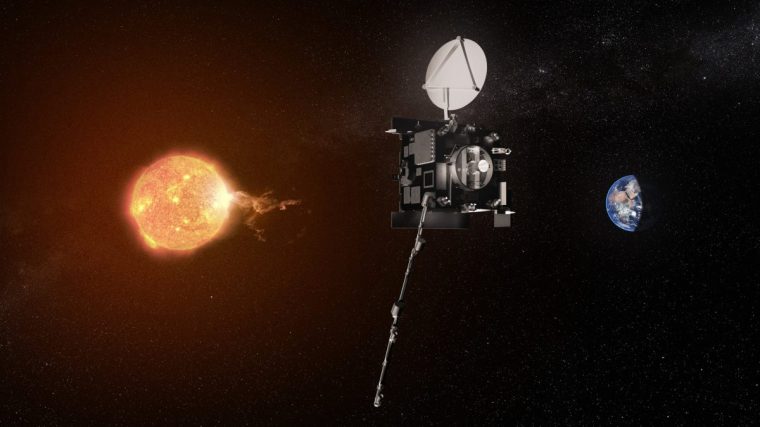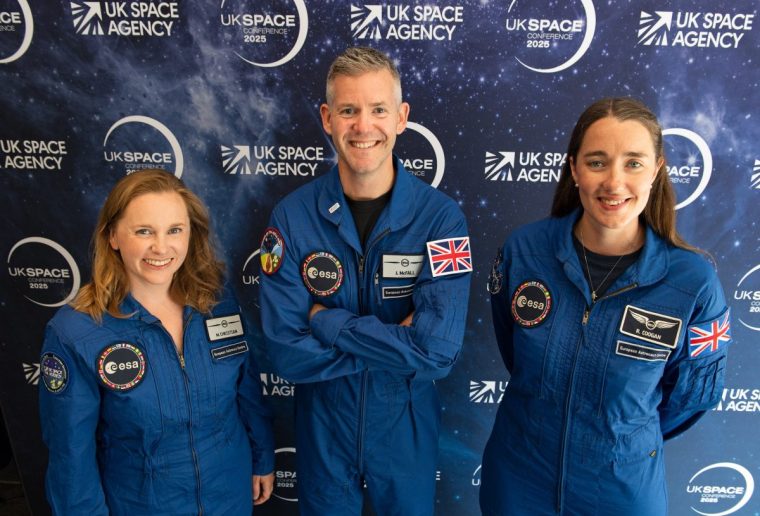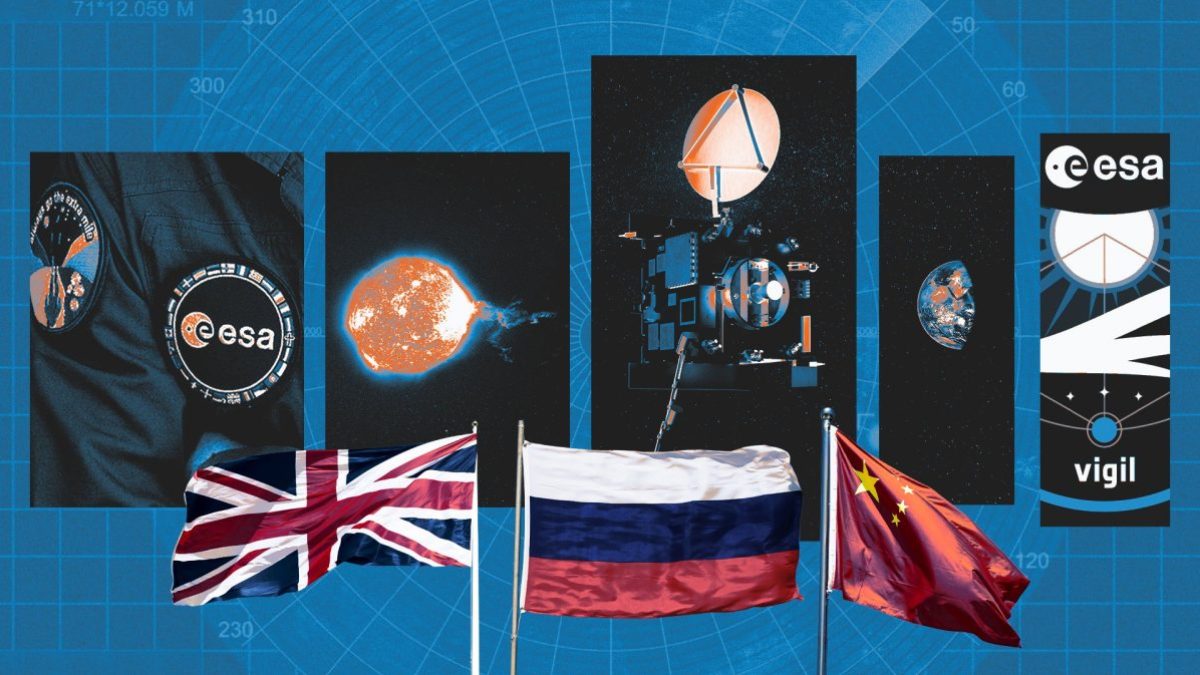Power grids, high altitude flights, GPS and even missile defence systems are all vulnerable to the sun’s solar storms – Britain is leading the response
Britain is launching a £700m mission to monitor extreme “space weather” amid growing concern it could be harnessed by hostile states, The i Paper can reveal.
The European Space Agency’s Vigil satellite will be the world’s first asset to permanently monitor the Sun from a unique vantage point in deep space and deliver early warnings of incoming solar storms.
Flares and eruptions from the Sun deliver powerful bursts of energy that can create a major disturbance in the Earth’s magnetic field, knocking out critical space infrastructure.
Insurance firm Lloyds recently estimated that an extreme solar event could lead to worldwide chaos with grounded flights, silent phones, and frozen financial networks, wiping as much as $2.4trn (£1.7trn) from global GDP over five years.
The UK government estimates losing just its own space assets would cost £1bn a day to the economy.
There is also concern that solar storms – which scientists believe are set to become more frequent and intense in the coming decades – can jam GPS and radar systems used in defence.
This is becoming an increasing security concern, as it is feared that if countries including Russia and China have knowledge of when these solar storms are coming – they could take advantage of radar systems being knocked out.
‘Some nations can act badly in space’ The ‘Vigil’ will monitor the Sun from a unique vantage point in deep space (Image: European Space Agency)
The ‘Vigil’ will monitor the Sun from a unique vantage point in deep space (Image: European Space Agency)
Paul Bate, chief executive of the UK Space Agency, said he is working closely with the government and military chiefs to prepare.
“We have something called UK Space Command, which is up there with Air Command and Land Command. It’s there to protect and defend us in space and from effects of space – we work very closely with them,” he told The i Paper at the UK Space Conference in Manchester.
“A lot of the things that are on satellites can be used for really good defensive things – it can help our country against our adversaries.
“We have a duty to protect the nation. We know that the Russians, for example, in 2021 launched a missile from the ground and destroyed one of their own satellites – it was an unbelievably irresponsible thing to do.
“That’s an extreme example of how some nations can choose to act badly in space, it gives a sense of what the capabilities are and what we have to defend against.”
Solar storms can travel towards Earth at speeds of up to 3,000kph, leaving authorities as little as 12 hours to prepare.
A senior space industry source said that currently, it is believed no military power has the capability to accurately predict when solar events could disrupt defence systems.
 British astronauts, left to right, Meganne Christian, John McFall and Rosemary Coogan. Christian says European nations must remain alert when it comes to threats from space (Photo: Max Alexander)
British astronauts, left to right, Meganne Christian, John McFall and Rosemary Coogan. Christian says European nations must remain alert when it comes to threats from space (Photo: Max Alexander)
However, it is believed solar flares may have played a role in the sinking of a Russian warship during the conflict with Ukraine in 2022 by leaving its radar unable to track incoming missiles.
Nations including the US, China and Russia are now in a race to have a better understanding of solar storms and how they could give them a military advantage, the source said.
Western nations ‘preparing for more space conflict’
Vigil will be positioned in an area of space known as “L5” where it will be able to effectively peer around the corner of the Sun and deliver 24/7 updates on solar activity back to Earth.
While space remains governed by international law prohibiting the use of weapons of mass destruction, Bate said it is becoming an increasingly “contested and congested” arena.
“Space certainly is in no way immune to all the geopolitics of Earth,” he added.
“The government put out its Strategic Defence Review [in June] and it’s got a whole section just about space, reflecting how important space is for defence and defence is for space.
“We need to make sure we are prepared, that we’re ready to make sure we can use it to our advantage and it’s not used against us.”
Vigil is expected to launch in 2031 and the mission, a UK-French collaboration, is expected to be around €800m (£700m).
The European Space Agency currently launches its satellites from French Guiana, but the UK is preparing to open its own space port in the Shetlands this summer.
Harshbir Sangha, a director at the UK Space Agency, said: “Space weather provides a difficult challenge for us – extreme space weather could cause unwanted currents in power grids, satellite damage or disruption, impacts on high altitude aircraft and satellite navigation failures.
“That’s what we’re trying to mitigate with the Vigil mission.
“At the UK Space Agency, we do recognise space weather as a critical risk, not just to space infrastructure but to the economy as a whole.
“The information we currently have is largely reliant on the US – Vigil gives us a completely different vantage point.
“We are leading the mission, working with our international space partners. So far we’ve invested around £160m into the mission – a considerable cost, but it’s a cost which does help us mitigate the risk.”
Meganne Christian, one of Britain’s leading astronauts, told The i Paper she believes space can remain “off limits” to international conflict but that European nations must remain alert.
“International collaboration, also collaboration between industry and governments, is fundamental to space, not just exploration but anything that we do,” she said.
“I think it’s a really strong example that we can all get along.
“We need to do it together. There’s no point wasting time and resources on a race.
“It’s a delicate balance; things can go wrong and do go wrong. There is conflict in the world, and because we are so reliant on our space assets, we also have to protect them from something that might happen.
“It’s important for Europe to be autonomous in many ways.”
